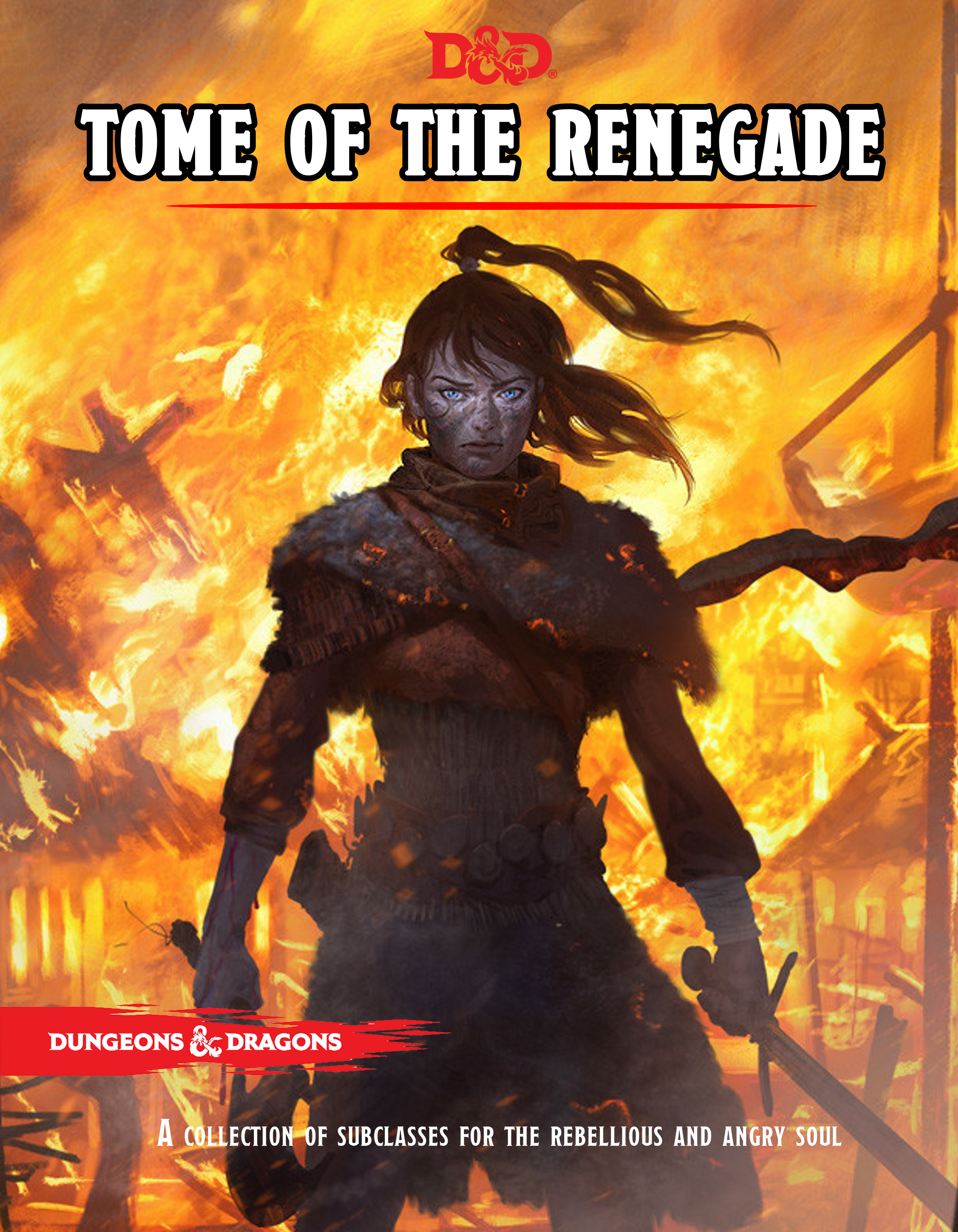
Fan Content Policy
Tome of the Renegade is unofficial Fan Content permitted under the Fan Content Policy. Not approved/endorsed by Wizards. Portions of the materials used are property of Wizards of the Coast. ©Wizards of the Coast LLC.
Never Surrender
Every rebellion, every resistance, owes its success to these words. Even when it’s clear that you’re not going to win, the best of them refuse to bow down, they only change their resistance and how they fight. Some are obviously going to choose the path that fights against their oppression through words. Others fight by existing outside of the system that would otherwise define them. And others still, of course, fight by actually fighting.
The fact is, oppression takes so many forms. There’s of course the obvious ones, of an evil lord reigning terror over a town who commands a corrupt and complicit guard. But sometimes, it can be even more subtle than that. Simple laws that, in wording, don’t oppress anyone. But then you realize that, for an example in one world, skooma is primarily consumed by just one race, and thus its regulation allows for them to be targeted exclusively.
Other times, it may be something like deforestation, depriving the peoples of the world of the trees that some may rely on, like clans of orcs, leading to them being labled as ‘raiders’ when they inevitably retaliate. This is then, of course, followed by painting a picture of prejudices.
“All orcs are bloodthirsty, raving marauders.” “Half-orcs are all the products of sexual assault.” “It’s possible that an orc, if raised outside its culture, could develop a limited capacity for empathy, love, and compassion.” “No matter how domesticated an orc might seem, its blood lust flows just beneath the surface.” “They worship an evil god who wants them to be bloodthirsty, so they are.”
Of course, there are instances of religious institutions being the source of oppression, as well. It’s unfortunately a common trend that when an oppressive, tyrannical government is in place, one of its staunchest supporters is the church that has been in place for centuries. Indeed, such is often the plight of drow who seek to free themselves from the tyranny of their matriarchs, preaching against the church and being branded as a heretic or apostate.
Or, indeed, it could be something like certain guilds controlling entire industries, and so the only option is to push back by doing everything you can to hurt their profits. Bards singing of the misdeeds of these guilds in taverns, or even sometimes directly attacking a guild’s profits via theft and other crimes.
Every method is valid, every word said and every punch thrown is one step in the name of the freedom of others. And you’re holding this tome, or reading it via other means, because you want one thing: To be free.
A wise man once said “Man is free the moment he wishes to be.”
What’s your choice?
Table Of Contents
Tome of the Renegade Version 1.0
Artificer Specialization: Technician2
Barbarian Path: Path of the Thrasher4
Bardic College: College of Punk5
Cleric Domain: Faithless Domain6
Druidic Circle: Circle of Civilization 7
Fighter Archetype: Guerrilla9
Monastic Tradition: Way of the Dragon10
Paladin Oath: Oath of Freedom11
Ranger Archetype: Conductor13
Roguish Archetype: Mad Dog14
Sorcerous Origin: Luck15
Otherworldly Patron: The Dragonslayer17
Wizard Tradition: Antimagic18
Optional features19
Take Caution
Many of the subclasses presented here fundamentally change the way the core class is played once they’re gained, even if the class traditionally doesn’t change that much from its subclass. Due to this, it’s possible that without intervention, there will be a massive discrepancy between before and after gaining the subclass. For these purposes, in the back of the sister to this book, Tome of the Heretic, is a number of optional features meant to bridge the gap. It is highly recommended to allow any players using these subclasses to use these features if you have them begin at level 1 and to disallow multiclassing.
Artificer Specialization: Technician
So many things are thrown away before their time. A single crack in a glass will have many throwing the entire thing away, a single torn page can render a book worthless to many. So much is just tossed and wasted without care, especially when a replacement can just be bought so easily. And thus the trash accumulates, damaging the world more and more. But so much of what would be thrown out can just be repaired with a little patience and a little skill, and even if it can’t, you can still repurpose it rather than wholly tossing it.
That’s where you come in. A dedicated believer in repairing the broken and repurposing the discarded. Sure, you can be a little extreme about this; to you, even dead bodies count under this banner. But it’s just a matter of not accepting that something is worthless, and that everyone has a right to repair what they own and repurpose what would otherwise be tossed to the side and forgotten.
Technician Spells
You always have certain spells prepared after you reach particular levels in this class, as shown in the Technician Spells table. These spells count as artificer spells for you, but they don’t count against the number of artificer spells you prepare.
Technician Spells
| Artificer Level | Spell |
|---|---|
| 3rd | cure wounds, unseen servant |
| 5th | borrowed knowledge, gentle repose |
| 9th | animate dead, speak with dead |
| 13th | death ward, fabricate |
| 17th | animate objects, raise dead |
Repair, Not Replace
Beginning at level 3 when you take this specialization, you commit to the idea that things should be fixed rather than replaced, whether it’s an object or a person. Whenever you use your tinkers’ tools or any other tool to repair something, you add double your proficiency bonus to the check even if you’re not proficient in the tool. Any repair you make uses half of the required materials to conduct the repair, and each foot of material you repair takes 12 seconds. When you gain the Tool Expertise feature at level 6, you instead add triple your proficiency bonus to those checks.
In addition, you become proficient in Medicine if you’re not already, and may add double your proficiency bonus whenever you would make a check that uses Medicine.
Better Than You Found It
Also at 3rd level, any time you restore hit points to something, you also grant temporary hit points equal to your Artificer level + your Intelligence modifier + your proficiency bonus. These hit points last until depleted.
In addition, whenever you grant temporary hit points, the target you grant them to has resistance to a damage type of your choice and loses any vulnerability to that damage type while they have those temporary hit points.



Font of Repair
Beginning at 5th level, your devotion to maintaining things extends to even the most unlikely of sources. You may target any construct, object, or undead with spells that restore hit points as if they were living creatures. In addition, you gain a font of power you use to heal others, which has a number of points equal to your Artificer level + your Intelligence modifier.
You may expend points from this pool as a bonus action to restore hit points, where each point you spend restores hit points equal to your Intelligence modifier + your proficiency bonus. You may refill this pool by expending hit dice, or others may refill this pool for you by expending their own hit dice. When a hit die is expended this way, roll it as if it were being used to recover hit points, then restore points to the pool equal to the result. The pool does not refill in any other way.21
Master of Recycling
Beginning at 9th level, your purpose is fully realized, allowing you to recycle anything and everything around you that may yet prove useful. Whenever you cast a spell with a material component that costs gold, you may choose to have the spell consume inanimate materials of your choice around you to pay for that cost, where each GP of material consumed pays for 1 GP of the material component cost. If a cost for the material isn’t apparent, your DM decides how valuable the material is. Even if the spell doesn’t consume its material components normally, materials you use in this way are always consumed.
You may also have the spell consume dead bodies for this feature, where the body pays for 256 GP per CR the creature would have had in life. For example, a CR 1/8 creature would only pay for 32 GP of a spell’s material cost, whereas a CR 20 creature would pay for 5,120 GP. Excess value is lost after you cast the spell.
The Power is in Our Hands
On reaching 15th level, your capacity to repair the damage you see in the world reaches its peak. Any magic item you repair has its magic restored to it, and whenever you expend a spell slot to cast a spell that restores hit points to an object or would otherwise repair an object, you immediately recover that spell slot. Objects you’ve repaired can’t be destroyed by magic while you’re still alive.
In addition, healing you give makes the target of your attention particularly resilient and adept. Anyone you heal gains immunity to any effect that would instantly kill them, including any effects of creatures that trigger if they reach 0 hit points later, and also gains a +2 bonus to all dice rolls they make. This bonus doesn’t stack with itself, never applies to you, and is only applied to the last 5 creatures you healed. Both of these effects last until they complete a short or long rest.
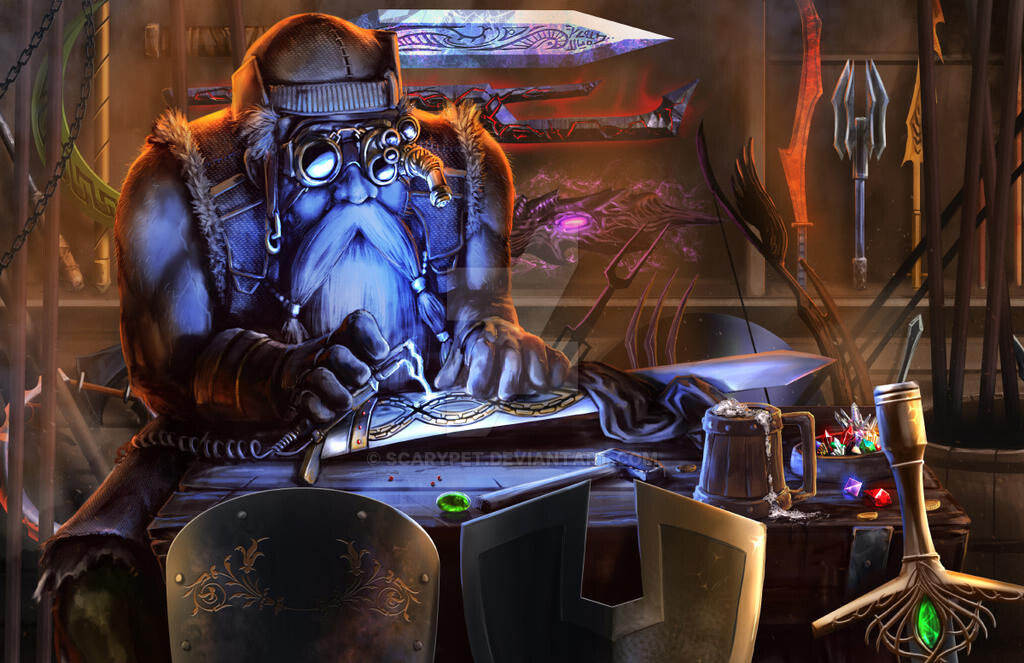


Path of the Thrasher
The celebrations break out in the middle of the tavern, and everyone’s having a great time. Until they’re not, and one bump too many sends someone into a drunken rage. Usually, this is where a tavern brawl emerges, and it’s a chaotic and messy affair.
But then there’s the people who live for it. They see a brawl about to start, and instead of going the other way, they jump in with an elbow first and due consideration later. Everyone else quickly realizes just how much a mistake it was to start a brawl with them nearby.
A consummate brawler, a thrasher will take whatever licks you give them and ask for more before dishing out their own brutal retaliation. There’s few places worse than being stuck in a pit with a thrasher.
Throw Down
Starting when you choose this path at 3rd level, you become an expert at fighting in pure close quarters. While fighting with nothing but your bare hands, your unarmed attacks deal 1d8 plus your Strength modifier in damage, and may treat them as weapons for the purposes of your class features and spells cast on them. In addition, if you were dealt damage since your last turn, you may add your Constitution modifier to any damage roll you make with an unarmed attack during your turn.
Party Animal
At 3rd level, your time in the pits wasn’t all brawling, and you still know how to party properly. You gain proficiency in the Performance skill if you don’t already have it. If you do, you may gain proficiency in another skill. In addition, whenever you would make a Performance check, you may use your Constitution instead of Charisma for the check. You may add a bonus to the result of the check equal to your Rage damage if you make a check in this way.
Welcome to the Pit
Starting at 6th level, you take what you’ve learned from fighting in a pit full of people and apply it elsewhere. Once someone’s in the pit, they’re going to have to fight their way out. While raging, you can make opportunity attacks with your unarmed attacks without using your reaction, and you can use your reaction to make an unarmed attack against a creature that moves more than 5 feet while within your reach.
Pit Expert
At 10th level, you’ve learned to apply your time in the pits to guiding your allies through without getting hurt. While an ally is within 5 feet of you, attack rolls made against them are made with disadvantage, creatures within your reach provoke opportunity attacks when they attack them, and they have advantage on saving throws against effects that only target them.
Master of the Pit
Beginning at 14th level, any pit you enter becomes yours, and you control the flow. While raging, you make opportunity attacks with advantage, and any creature you hit with an opportunity attack can’t willingly leave your reach until the start of your next turn. In addition, when you’re hit by a creature within your reach, you gain a +5 bonus to your damage rolls during your next turn. This bonus doesn’t stack.

College of Punk
No matter where you are or what you do, there’s always that niggling feeling that there’s someone calling the shots and telling you what to do, what to think, and what to say. Sometimes, it’s just a feeling and not quite the truth, but in other cases it’s absolutely the truth. And, well, someone’s gotta call that out when they see it, right?
That’s where bards of the College of Punk come in. They’ve seen the gross, grime-covered underbelly of the world and seen the bigwigs and tryhards try and make everyone fit in their little molds and do their little jobs. And they’re not going to take that laying down. Whether singing in a gross little tavern, on a grand stage in front of a roaring crowd, or provoking a crowd into a full-on riot, a punk is going to be there to punch the big guys in the nose.
There isn’t a place in the world they’d rather be than making someone very powerful very angry.
Bleed for Me
At 3rd level, your words are the most brutal and cutting anyone’s every heard, the kind of verbal viciousness that banshees dream of. You learn the Vicious Mockery cantrip if you don’t already know it. If you do, you may choose another cantrip from the Bard spell list and learn it. In addition, whenever you cast Vicious Mockery, you add your Charisma modifier to the damage, and all damage dice you roll for it become d6s. At level 6, they become d8s. At level 14, they become d10s.
Rip Her to Shreds
You’ve learned to inspire with anger, and make your listeners particularly effective at tearing apart their foes. Starting at 3rd level, whenever a creature you’ve given an inspiration die to rolls damage, they may expend the inspiration die and reroll all the dice for that damage, adding the inspiration die to the second result. They must take the second result.
You’ll Be The First To Go
Using your time on the stage, you know how to rile up the crowd and get them rioting. Starting at 6th level, as an action on your turn, choose either all allies within 30 feet that can hear you, or all enemies within 30 feet that can hear you. If you chose allies, those allies gain advantage on their next attack roll before the end of your next turn. If you chose enemies, those enemies must make a Wisdom saving throw against your spell save DC. On a failure, those enemies are frightened until the end of your next turn. You may use this feature a number of times equal to 1 plus your Charisma modifier, and you regain all uses whenever you finish a short or long rest.
Rise Above
No matter what they throw at you, how loud they get, or how badly they hurt you, you will never be silenced. At level 14, you gain the following benefits.
- You become immune to the charmed and frightened conditions. Allies who can hear you share this benefit as long as you’re conscious.
- No spell or effect can prevent you from speaking or alter how you speak or what you say. This includes Zone of Truth and Silence effects.
- Your tongue and mouth can’t be damaged or removed by any means. If your mouth is covered, you can still speak normally as if it wasn’t covered.
- You can increase the volume of your voice at will, to a maximum of at least twice as loud as the other loudest sound within 120 feet of you.
The Punks of Fantasy
Obviously, ‘punk’ as a concept only emerged as a concept in our reality in the 1970s, and are therefore a decidedly modern concept. However, music performed as counter-culture long precedes punks, and there’s not any real reason to believe that a similar idea couldn’t emerge, especially in settings like Eberron. Obviously, discuss this subclass with your DM and determine if it fits with their world.





Faithless Domain
To many, the gods are just, and their teachings and assumed presence are a source of hope and comfort. However, some instead deny the divinity of the beings worshipped as gods. In certain settings, there is no denying their existence, but there is certainly denying that they are worthy of worship. These are the trappings of the Faithless.
Of course, also in certain settings, the Faithless are ridiculed at best and horrifically punished at worst. So come the clerics of the Faithless, who take the trappings of the divinely inclined and instead channel it to aid those who are treated unfairly for refusing to bow to a being who is only demonstrably powerful.
It is their lot to attempt to soothe the aches inflicted on them by the faithful and the would-be divine, and they do so with aplomb.
Faithless Domain Spells
| Cleric Level | Spells |
|---|---|
| 1st | protection from evil and good, unseen servant |
| 3rd | gentle repose, nystul’s magic aura |
| 5th | spirit shroud, speak with dead |
| 7th | dimension door, freedom of movement |
| 9th | awaken, raise dead |
Bonus Proficiencies
You gain proficiency in martial weapons. In addition, you gain proficiency in Deception and Stealth checks.
Your proficiency bonus is doubled for any ability check you make that uses your proficiency in Deception.
Blessings of the Faithless
Starting when you choose this domain at 1st level, you may protect your allies from the whims of the gods. Whenever an ally makes a roll with a d20, you may use your reaction to let them instead treat the result as if they rolled a number equal to 2 + your proficiency bonus + your Charisma modifier, then add their bonuses to the result.
You can use this feature a number of times equal to your Charisma modifier (a minimum of once). You regain all expended uses when you finish a long rest.
Inner Divinity
Also at 1st level, your rejection of the divinity of deities and belief in yourself and others means your power is drawn from your own sense of self rather than any deity. Your spellcasting ability is Charisma and you use Charisma whenever a Cleric feature calls for Wisdom.
In addition, your beliefs necessitate obfuscation. Whenever another creature would attempt to discern your beliefs or identify the manner of religious organization you belong to, they must succeed on a Religion check opposed by your Deception check. If they fail, you use mannerisms, snippets of scripture, and careful wording to lead them to believe that you belong to an organization of your choice and that you believe in a specific god.
Channel Divinity: Deny Fate
Starting at 2nd level, you can use your Channel Divinity to further deny the whims of the gods.
Whenever a creature you can see makes a death saving throw and fails, you may use your reaction to have them reroll it. They get a bonus to this roll equal to your Charisma modifier, and if the total is equal to and greater than 20, they treat the result as if they rolled a natural 20.
Denial of the Divine
Your refusal to bow to the divine has entailed learning to counteract those who would seek to enforce their will upon you. Beginning at 6th level, you add the Counterspell spell to your spell list. In addition, you may cast the Counterspell and Dispel Magic spells without consuming a spell slot, but only if their target is of a divine origin, such as a spell being cast by another cleric or the divine sanctification or desecration of a site. When you cast either spell in this way, it is considered to have been cast using your highest level spell slot. You may cast each spell twice this way before needing to take a long rest.
Divine Strike
At 8th level, you gain the ability to infuse your weapon strikes with your inner divinity. Once on each of your turns when you hit a creature with a weapon attack, you can cause the attack to deal an extra 1d8 force damage to the target. When you reach 14th level, the extra damage increases to 2d8.
Dove’s Grace
Starting at 17th level, you have found a way to shield those that refuse to bow to so-called higher powers. As an action on your turn, you activate inner power, causing you and all creatures of your choice within 600 feet of you gain immunity to the frightened and charmed conditions. In addition, when a creature you’re granting this benefit to would make a saving throw against an effect that would suppress their will, alter their mind, or otherwise have the will of another being forced upon them to force them to act in a certain way, they succeed on that saving throw. This benefit lasts for 1 hour. Once you use this feature, it can’t be used again until you finish a long rest.
In addition, you may obfuscate a creature’s soul, allowing them to enter any afterlife they wish. As an action, you may touch a creature or a corpse that has been dead for no longer than a day. If they die within the next year or if they were dead, they may choose where their soul goes by appearing as a soul belonging to a particular deity’s claim. Nothing can identify their true beliefs unless you or the creature allow it. You always apply this effect to yourself.
Who Are The Faithless?
What being Faithless means is heavily setting dependent, and this author will actively admit this option was designed with the Forgotten Realms and Theros in mind. However, even settings with inactive/unclear gods such as Eberron would still have this domain fit perfectly fine, their flavor just becomes more directly atheistic.
Intervention of the Faithless
When a Faithless Cleric would use the Divine Intervention feature, they’re not going to reach out to a deity. As such, rather than beseeching a deity, you reach out to the many Faithless souls trapped beyond, seeking their collective aid.
Circle of Civilization
It is held as sacrosanct by the druids that harmonizing with nature is the only true path to balance; and to do so, you must exist apart from civilization to defend against the worst excesses of civilization.
It is the druids of the Circle of Civilization, however, that insist that to truly protect the natural world, then there must be druids that exist in that part of it where society does. Also called urbanists, they resolve to protect the pockets of nature that exist within society and try to guide civilization to exist in harmony, and deliberately try to intertwine the two peacably.
The nature of these druids depends heavily on where they are, and the nature of the city they’re in. In a city that tries to keep itself from causing harm to the world around it, they are upstanding members of society and helpful collaborators. In a city that does not, they are firebrands, rabble-rousers, and at their most fervent, violent resistors.
Many druids hold these ones as going in the wrong path, and an urbanist’s ideal of peacably intertwining civilization and nature flies in the face of commonly held druidic beliefs. But, these urbanists insist that when push comes to shove, they’re the ones who will make a difference in the world.
Intertwine
Beginning at 2nd level, your peculiar approach to druidism requires a separate approach. Your spellcasting ability changes to Charisma, innately representing that you seek to harmonize civilization with the rest of nature by actions rather than rejecting it wholly. Any Druid feature that refers to Wisdom now uses Charisma instead.
In addition, you gain proficiency in two tools of your choice. Your proficiency bonus is doubled for any check that uses Nature or either of the two chosen tools. You may also use those tools as spell foci for your spells.
Wrath of the City
Also beginning at 2nd level, you may spend an hour to attune to a settlement, exploring its streets and environments to get a sense for it. You may only be attuned to one settlement at a time. While attuned, you may make a Nature check in place of any other check while searching for something or someone within the settlement or to learn something about the settlement or about something happening in the settlement. When you make a check this way, you use Charisma instead of Intelligence.
In addition, while you’re attuned to a settlement and within its limits, you may make contact with the ground as an action and choose a creature you can see within 60 feet of you. That creature makes a Wisdom saving throw versus your spell save DC. On a failure, for 1 hour, that creature treats all terrain within the settlment as difficult terrain, appears to its permanent residents as the overall most socially detestable thing for those residents possible, and leaves a very obvious trail through the settlement, meaning the DC to track them can be no higher than 10. You may do this a number of times equal to your Charisma modifier before needing to take a long rest.
Urban Circle Spells
Your desire to interwine nature and civilization infuses you with the ability to cast certain spells. At 2nd, 3rd, 5th, 7th, and 9th level you gain access to Circle of Civilization spells connected to this desire.
Once you gain access to a Circle spell, you always have it prepared, and it doesn’t count against the number of spells you can prepare each day. If you gain access to a spell that doesn’t appear on the druid spell list, the spell is nonetheless a druid spell for you.
Circle of Civilization Spells
| Druid Level | Spells |
|---|---|
| 2nd | Feather Fall, Identify |
| 3rd | Borrowed Knowledge, Magic Weapon |
| 5th | Glyph of Warding, Tiny Servant |
| 7th | Fabricate, Summon Construct |
| 9th | Creation, Skill Empowerment |
Heartbeat of the City
Beginning at 6th level, you gain an innate feeling for urban environments, allowing you to feel the pulse of a settlement. You may make contact with the ground for 1 minute and consume a use from your Wrath of the City feature in order to learn information from or a fact about a settlement you’re attuned to while you’re in that settlement. Ask the question, then make a Nature check. The DC for this check is determined by the DM based on how difficult it is to find that information normally, as if you spent time going around town gathering information. You may find information that once existed in the city but is no longer there in addition to whatever normal information you can find. If the information was never there, the check fails.
Urbanists and Typical Druid Taboos
It may go without saying that an urbanist has no compunction against using metal armor or shields, as their focus on tools and making things suggests. Urbanists have none of the usual taboos that druids have, save for the one at the core: That nature should not be hurt in the progress of society. The central disagreement is that urbanists believe that druids of other circles are merely reactive, and that the world needs proactive druids.
Ultimately, urbanists have no need to follow any particular dogma other druids might follow, and have no compunctions with being part of society. Whether or not this makes them bad druids is up for debate.
Vengeance of the City
Beginning at 10th level, you can feel when something’s wrong in your city. Whenever significant damage is done to a settlement you’re attuned to while you’re within its limits, you know exactly where it happened. Significant damage is the destruction of a monument, wall, park, or the setting of a fire, not petty vandalism. A creature attacking another citizen of the settlement unprovoked also triggers this feature. You may then immediately use your Wrath of the City feature on one of the perpetrators of the damage. When used this way, they have disadvantage on the saving throw.
In addition, when you attack a creature suffering from your Wrath of the City feature, the first attack you make against them each turn has advantage.
True Harmony
Beginning at 14th level, your attunement to your settlement has grown so strong that no one has a better understanding of it. Whenever you interact with a creature for 1 minute within a settlement you’ve been attuned to for at least a week, if that creature has been in that settlement for at least a total of a week, you know their name and all general information about them, such as what they’ve done in the last week within the settlement, where they live or where they’re staying, and what jobs they’ve taken. You gain advantage on all Intelligence, Wisdom, and Charisma checks made against them for as long as they remain in the settlement, and they have disadvantage on all saving throws made against your effects for as long as they remain within the settlement.
In addition, you may travel to any part of the settlement you’re attuned to within 5 minutes, using your magic and connection to find shortcuts, make citizens conveniently move out of your way, or even create temporary paths through that magically shorten the distance.

Fighter Archetype: Guerrilla
“It was…probably about midnight,” the old soldier starts, a haunted look passing in his eyes. “Me and my unit were setting up camp, to wait for the next day’s battle and our commander’s orders. He, like all of us, thought it would go like it always did. Soldiers lining up on each side, and fighting it out directly. None of us understood that wasn’t what was going to happen.”
The old soldier shudders. “It started so fast. Garrick, my…my compatriot, I’d trained with him. He just fell. Two arrows in his head. He was dead before any of us knew what was happening, and he was our war wizard. We only found out later he was our best chance of winning. Of course, we start trying to figure out what was going on. We thought maybe it was bandits. No, if only we were so lucky.”
“That’s when we started thinking the shadows were moving. We thought we heard laughter. Shots whizzed by us we absolutely weren’t prepared for. They were playing with us. To this day, I don’t know how many there were. All I remember is that I’d look away, and suddenly there was one less person each time. Either dead, or just gone. And then it was me. Only me. I want to say I was brave, but I wasn’t.”
He begins to cry, his hand covering his mouth. “I was alone. I ran, deserted my post, and never came back. I found out later every unit was hit just the same. We were scattered. Our commander was found dead, hung on a post and displayed as a warning. We lost that battle, decisively. I still don’t know what it was that came for us. And I don’t want to know.”
Terror Tactics
At 3rd level, you become proficient in the use and execution of tactics meant to terrify who you’re fighting against. You gain proficiency in the Intimidation and Stealth skills. If you’re already proficient in one or both, you may become proficient in a different skill.
In addition, creatures no longer automatically detect you when you make a ranged attack against them; they must succeed on a Wisdom (Perception) check opposed by your Dexterity (Stealth) check. If they fail, they don’t know where the attack came from exactly and you remain hidden.
You may also choose to purposefully miss a creature with a ranged attack while hidden to make a Charisma (Intimidation) check versus their Wisdom (Insight) check. If they fail, they become frightened of anything someone could conceivably hide within until they damage you or 24 hours have passed without a sign of you.
Stealthy Approach
Also beginning at 3rd level, you and up to 7 allies may move stealthily at a normal pace so long as none of the allies you choose have disadvantage on Stealth checks. In addition, you may hide as a bonus action so long as you have not attacked this turn.
Only Dreams Now
Beginning at 7th level, your grapples become far more potent. You become proficient in Athletics if you’re not already. Creatures that breathe that you grapple can’t speak, and they drop anything they’re holding when you grapple them if you were hidden before you made your attempt. In addition, you may choose to attempt to render them unconscious as an action. You apply pressure to their airway, and maintaining this hold for 1 minute will render the creature unconscious. They may make attempts to escape your grapple as normal, but each failure applies a cumulative -2 penalty to their future checks, up to a maximum of three times your proficiency bonus. Taking damage from any creature except the one you’re grappling interrupts this process, and creatures that don’t breathe are immune.
Guerilla’s Expertise
At 10th level, you’ve become adept at the skills you use for your tactics. Whenever you roll Athletics, Intimidation, or Stealth, your proficiency bonus is doubled for any ability check you make that uses any of those skills. In addition, you gain a climb speed equal to your walking speed.
Isolated Target
At 15th level, the first time each turn you hit a target that is not standing next to any of its allies, is frightened, and you’re hidden from, instead of rolling damage you do the maximum amount of damage the attack could do, as if you rolled the highest number on each die. If you get a critical hit while benefitting from this feature, that enemy is reduced to 0 hit points unless it succeeds on a Constitution saving throw with a DC equal to half of the damage you dealt.
Fight Unseen
Beginning at 18th level, you have improved your ability to fight from the shadows significantly by flitting past before they can spot you. When you move while hidden, as long as you begin your movement and end your turn in a space you could use the Hide action in, you’re never spotted while moving to a new position. In addition, whenever you make a melee attack while hidden, your target must succeed on a Wisdom (Perception) check opposed by your Dexterity (Stealth) check. If they fail and you end your turn in a space that you could hide from them in, they aren’t able to spot you before you slip away to a hidden position.
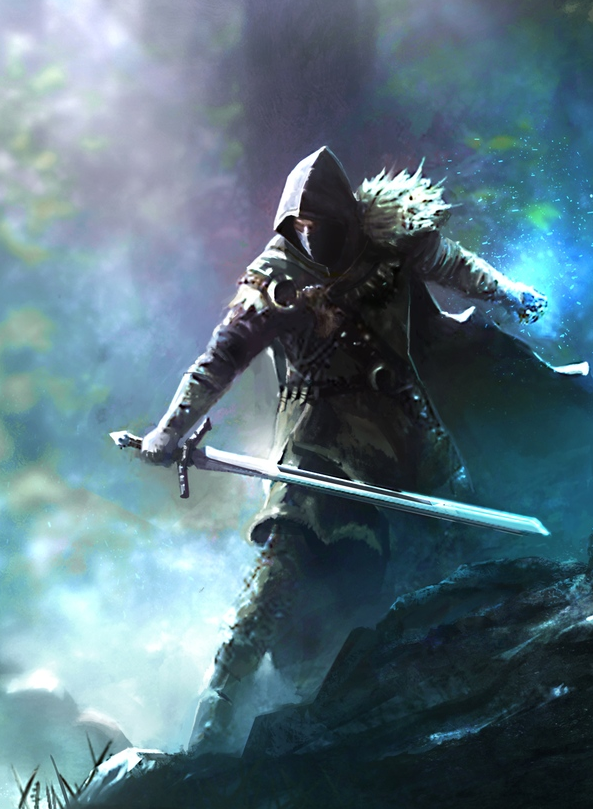




Monastic Tradition: Way of the Dragon
The dragon is pure power, distilled into a body capable of reducing a village to ash. Such a creature is no model for a normal monastary, but sometimes in the streets of the roughest cities something resembling the nature of a monstary emerges.
From this comes those who practice the way of the dragon, becoming more brutal and savage than any other tradition would ever dare to be. Most followers of the other ways even refuse to call them monks due to this, but their dedication and unflinching nature makes it incredibly clear where these individuals lay. Either on the streets for their particular gang or on their own after being expelled, there is none more fearsome than a dragon in humanoid form.
Essence of the Dragon
When you choose this tradition at 3rd level, your rough training in the most dangeorus environment of the streets manifests fully. You gain the following features:
Fists of the Dragon. While using nothing but your bare fists, your Martial Arts die increases by one step. Your fists may be targeted by spells as if they were weapons when you allow them to be. You also gain proficiency with improvised weapons, and may use them as if they were monk weapons.
Iron Gut. When you benefit from your Unarmored Defense feature, you may calculate your AC as 10 + your Strength modifier + your Wisdom modifier. You may also use Strength instead of Dexterity for your Deflect Missiles feature.
Demand Respect. You gain proficiency in Intimidation if you didn’t have it already. Whenever you roll an ability check using Intimidation, your proficiency bonus is doubled. In addition, you may use Strength instead of Charisma for any Intimidation check. Whenever you hit an enemy with an attack from your flurry of blows, they must make a Wisdom saving throw against your Ki save DC. On a failure, they are frightened of you for 1 minute.
Awaken the Dragon
Starting at 6th level, you may enter a heightened state of power. You may spend any number of ki points. You gain each of the following benefits depending on the number of ki points spent, and each last for 10 minutes.
3 ki points. Increase your martial arts die’s size by 1 step. A d12 becomes 2d6.
6 ki points. Whenever an enemy attacks you, you may expend your reaction to make an attack against them. On a hit, the enemy is stunned until the end of your next turn, interrupting their attack.
9 ki points. You may use your flurry of blows, patient defense, and step of the wind features without expending ki points.
12 ki points. You have advantage on all d20 rolls you make.
15 ki points. Whenever you deal damage with an unarmed attack, you roll double the amount of dice.
18 ki points. When you target one creature with four attacks and hit with all four in the same turn, that creature is knocked prone and paralyzed until the end of your next turn.
This power visibly flows out from you, growing in intensity with the amount of points you spent.
Power of the Dragon
Starting at 11th level, your command over the dragon within has grown incredibly. You gain the following features.
Roar of the Dragon. As an action, you may expend 2 ki points and let out a fearsome roar,. Each enemy who can hear you within 30 feet of you must make a Wisdom saving throw. On a failure, they become frightened until the end of your next turn. If they were already frightened, they become stunned until the end of your next turn instead.
Dragon’s Heat. Whenever you get a critical hit on an enemy, you recover 3 ki points.
Beastly Grapple. If a creature you’re grappling is your size or smaller, you may use them to bludgeon another creature within reach. Treat this as if you’re making an unarmed attack, and whenever you hit with a grappled creature, both the creature you hit and the creature you’re grappling take the damage.
Dragon’s Finisher
At 17th level, you have ceased to give your enemies quarter, and decided an example must be made of those who stand in your way. Whenever you roll a critical hit against a frightened enemy, treat the damage as if you rolled the highest possible result. If the creature was stunned, you instead reduce that creature to 0 hit points, and each enemy within 30 feet of you becomes frightened until the end of your next turn.

Oath of Freedom
Against the ever-present growth of evil and corruption within the cities scattered across the world, the governments becoming mere pawns or worse, and the criminal underworld filling the gaps between, it becomes ever apparent that one’s freedom is diminishing. Standing against this tide will be those that take this oath, perhaps fruitlessly.
Blending in amongst everyday people, they fight an endless war against tyranny, slavery of all kinds, and all who would seek to bend others to their will. Variously called freedom fighters, rebels, and (at their loftiest, greatest heights) dragonslayers, paladins of the oath of freedom will never back down while someone seeks to impose tyranny over the people, and they’ll die for it if they have to. And at the apex of their power, even the most powerful tyrants aren’t safe from them.
Tenets of Freedom
The tenets of the Oath of Freedom push a paladin to fight against unjust rule, tyrannical law, and hopes to one day push them to ending the lives of tyrants once and for all. Tyrants and their ilk will always be the way they are, and as such are not protected by or benefit from these tenets.
Freedom from Tyranny. Never attempt to force an innocent to act a certain way, or threaten them if they refuse.
Freedom of Choice. Always fight to allow others to live their own lives as they wish to, so long as they do not seek to harm or tyrannize innocents along the way.
Fight for Freedom. Never allow tyrants to remain in power, slavers to remain in business, corrupt guards to abuse power, or anyone else tyranizing others to continue.
Always Fight the Big One. Your enemies are, by nature, powerful and will never want to give up that power. Fight them anyway, and keep fighting until you can’t fight anymore. Fight however you have to in order to take them down, break whatever laws you have to. Your only restrictions are these tenets.
Your Word is Your Bond. Once you make an honest promise, you are bound to complete it. If two promises you make contradict or a promise you make is truly impossible, you must immediately seek the one you made the promise you broke to and make amends. A promise to a tyrant or their servants or one that would break a tenet is never binding. You may not break a promise for any other reason.
Tenets and What They Mean
As can be seen by the tenets, there are a number of spells that wouldn’t fit the flavor of this oath. A DM may impose restrictions on the spells a character with this oath may cast. Any spell that would charm a creature would be forbidden to be cast, as well as spells that force people to act in certain ways like Command, Geas, or Zone of Truth. A spell that prevents movement without affecting the person’s mind does not fit this description, nor does a spell that forces combat. If this is imposed, if you would gain a spell or know a spell you can’t cast because of this, you may replace a spell with one of a similar level from the Cleric or Bard spell list that doesn’t violate this restriction. Knowingly casting such a spell becomes a violation of this Oath’s tenets.
Oath Spells
You gain oath spells at the paladin levels list in the Oath of Freedom Spells table. See the Sacred Oath class feature for how oath spells work.
Oath of Freedom Spells
| Paladin Level | Spells |
|---|---|
| 3rd | Disguise Self, Heroism |
| 5th | Knock, Pass Without Trace |
| 9th | Crusader’s Mantle, Nondetection |
| 13th | Freedom of Movement, Death Ward |
| 17th | Mislead, Passwall |
Channel Divinity
When you take this oath at 3rd level, you gain the following Channel Divinity options. See the Sacred Oath class feature for how Channel Divinity works.
Declaration of Freedom. You channel your defiance and free yourself or an ally, using your channel divinity without using an action. If you or that ally are charmed, frightened, restrained, grappled, petrified, or paralyzed, that condition immediately ends. If that condition is being caused by a creature being in contact with the target, that creature is immediately moved 5 feet away from the target, and the target can’t be subjected to those conditions until the end of your next turn. In addition, that creature gains advantage on any roll they make to escape any bond or restraint until the end of your next turn.
Strike as Lightning. As a bonus action, you may expend your channel divinity to quickly reposition your allies. Each ally that can hear you within 30 feet of you may move up to their speed. This movement does not provoke opportunity attacks. Then, they may expend their reaction to make a single attack or cast a spell with a casting time of 1 action.



















Aura of Evasion
Beginning at 7th level, you gain an aura that grants you and your nearby allies the necessary abilities to slip away from authority. You and creatures of your choice that start their turn within 10 feet of you may ignore up to 15 feet of difficult terrain once per turn, and may use the Disengage action or Dash action once per turn as a bonus action. At 18th level, this extends to creatures of your choice within 30 feet of you.
Fade Away
Starting at 15th level, you may cast Nystul’s Magic Aura without consuming a spell slot. Whenever you cast it, you don’t need to touch the target, and may target a number of creatures and objects within 30 feet of you equal to 1 + your Charisma modifier + your proficiency bonus (minimum of 1). In addition, any creatures you designate with the spell have advantage on Dexterity (Stealth) and Charisma (Deception) checks, and those creatures can’t be affected by Detect Thoughts, Scrying, or spells that perform similar effects unless they choose to be.
Wings of Rebellion
You have become the bane of tyrants, a true beacon of freedom and a slayer of tyrants far and wide. You build up to your perfect time to strike, and then strike them down in a furious burst of speed and ferocity…then vanish without a trace. Beginning at 20th level, as a bonus action on your turn, you may invoke the divine to give you the power to slay a tyrant. You gain the following benefits for 1 minute:
- Your movement speed doubles, and you gain a flying speed equal to your new walking speed.
- Once per round, whenever you fail a saving throw, you may choose to succeed instead. If it’s a spell and would deal half damage on a success, you take no damage from the spell.
- If you would take damage for attacking a creature, you take no damage.
- Any damage you deal ignores immunities and resistances, and damage you deal can’t be reduced by any means. Damage you deal bypasses temporary hit points and instead immediately damages the actual hit points of your target. Damage you deal can’t be healed by any means until 1 hour has passed since the damage was dealt.
- Whenever you reduce a creature you know to be tyrannical or evil to 0 hit points while using this feature, you may choose to banish that creature’s soul, shattering them entirely. If you do, that creature’s soul does not arrive to any afterlife and its essence is scattered across the planes. That creature can’t be restored to life by any means, not even Wish or the will of a deity. This will also prevent a lich from reforming at their phylactery and any other similar means to cling to life. It will even irrevocably and permanently destroy a deity.
When these benefits end, you and up to 5 other creatures of your choice may teleport up to 1 mile to a place you know. This teleport can’t be prevented by any means. Whether or not you do, you gain a level of exhaustion. You can’t use this feature while you have any levels of exhaustion.

Ranger Archetype: Conductor
Within the world, one unassailable truth is that slavery of any form is an unforgivable evil. The total subjugation of another sentient being to the point of being property is a sin that renders any other supposed merits of a given society null and void. The achievements of such a society will forever be tainted by it until the presence of slavery and any remaining influence is wholly removed. Some argue that fixing it is a timely process, that it takes a calm hand in order to fix such a problem.
And then you have those who flatly reject any such half-measures and take the liberation of others on themselves. These individuals often construct what are called ‘underground railroads’, which are in fact just carefully coded terms borrowing from the terminology of train stations in order to obfuscate their functionality. In truth, it is the operation of a great many people plotting an overland route to extricate slaves from societies which maintain their enslavement.
At the most crucial level are the conductors, the individuals who use their knowledge of the land and their ability to move through it unseen to help others do the same and escape the clutches of their slavers. These individuals risk life and limb in order to free others, and will continue to do so until freedom rings.
Conductor Magic
Starting at 3rd level, you learn an additional spell when you reach certain levels in this class, as shown in the Conductor Spells table. The spell counts as a ranger spell for you, but it doesn’t count against the number of ranger spells you know.
Conductor Spells
| Ranger Level | Spell |
|---|---|
| 3rd | Silent Image |
| 5th | Pass without Trace |
| 9th | Nondetection |
| 13th | Mordenkainen’s Private Sanctum |
| 17th | Passwall |
Conductor’s Training
Beginning at 3rd level when you gain this archetype, you learn to help others sneak and lie like you do in order to keep them safe. Whenever an ally within 30 feet of you makes a Dexterity (Stealth) check or a Charisma (Deception) check, they may use your bonus to those checks instead of their own, and while you and a number of allies equal to your Wisdom modifier plus your proficiency bonus are traveling, you and those allies may move stealthily at a normal pace.
Defender of the Meek
Also at 3rd level, you can adequately defend allies suffering from some effect meant to disable them. If you hit with an attack against an enemy while you or that enemy are within 5 feet of one of your alllies and that ally is suffering from a condition, you may add 1d4 damage of the same type as the attack to the damage roll for each condition that ally is suffering.
Never Lose a Passenger
When your reach 7th level, you have gained the resolve to never let anyone take those in your charge. Whenever an enemy hits with an attack they make while it’s not their turn or uses an ability, attack, or spell that inflicts a condition on an ally you can see, you may use your reaction to move up to your speed towards that ally and cast a spell with a casting time of 1 action that has neither an attack roll nor causes a saving throw. Alternatively, instead of casting a spell, you may use the Help action or attempt to stabilize an adjacent creature.
Never Run Off The Track
At 11th level, you will not be dissuaded from your path or intimidated off of it. You become immune to the charmed, frightened, and stunned conditions. In addition, you are immune to any spell which would restrict or alter your behavior, such as the Geas or Dominate Person spells. If a creature attempts to cast such a spell on you, you may use your reaction to respond with a magical countermeasure; make a spell attack roll against the creature who attempted to cast the spell on you. On a hit, that creature takes damage equal to your spellcasting ability modifier plus your proficiency bonus and loses the ability to cast that spell until they finish a long rest.
Breaker of Chains
Beginning at 15th level, you will not allow chains to bind anyone as long as you can help it. You learn the freedom of movement spell if you didn’t already know it and may cast it at-will without consuming a spell slot and you may cast it as if it didn’t have any components. Creatures you cast the spell on this way also gain an additional 5 feet of movement and gain immunity to the charmed, frightened, and stunned conditions for the duration.
In addition, you and allies within 30 feet of you are immune to damage from opportunity attacks, and enemies within 30 feet of you must make any opportunity attack they can.




Roguish Archetype: Mad Dog
In the depths of the underworld, there are all variety of criminal and unsavory elements. But here and there, you find one individual so utterly crazed that even the most hardened criminal is unnerved by their presence.
For their brutality, unpredictability, eccentricity, or some combination of the three, these mad dogs of the underworld are masters of the art of keeping their foes on their toes, and then demonstrating that being on their toes doesn’t matter if their leg’s been cut open when they weren’t looking, or taken a club to the head when they fall to the ground.
Dog’s Grace
Beginning at 3rd level when you take this archetype, you gain proficiency in improvised weapons, and you may use your sneak attack with any simple weapon or improvised weapon, even if it’s not a finesse weapon. You may also perform your sneak attack when you make an unarmed strike, and your Unarmed Strikes deal a d4 in damage. You may use Charisma for the attack and damage rolls of attacks you make with simple weapons, improvised weapons, and unarmed strikes.
In addition, while you’re unarmored and not using a shield, you may use your bonus action to gain a bonus to your AC equal to your Charisma modifier.
Lord of the Night
Your time in the night has given you some form of understanding of how a given city’s nightlife works, and how best to defend yourself from it. Beginning at level 3, you gain proficiency in Intimidation. If you already had proficiency in Intimidation, you may gain proficiency in Persuasion or Deception instead.
In addition, whenever you use Intimidation to threaten someone, if you have previously attacked and damaged them or someone else in their sight, you have advantage on the roll.
Essence of the Mad Dog
Beginning at 9th level, you gain an additional special bonus action that you may only use with your Cunning Action and only while you’re unarmored. Actions you take when you use this feature gain additional effects.
In addition, when you use your Dog’s Grace feature to gain a bonus to your armor class, the first attack made against you before the start of your next turn has disadvantage.
Dash. If you end your movement adjacent to an enemy, you have advantage on your next attack roll against them in the same turn.
Disengage. If an enemy you disengaged from moves into a square adjacent to you on its turn, you may use your reaction to make an attack against them. On a hit, you may apply your sneak attack damage, even if you already used it this turn.
Hide. If you successfully hide from a creature, the next time you would deal sneak attack damage to a creature you’re hidden from, you may reroll any 1s you roll for damage until they’re not a 1.
Fear the Mad Dog
At 13th level, whenever you reduce a creature to 0 hit points, you may make an Intimidation check against an enemy you can see. They must make a Wisdom saving throw against your result. On a failure, they become frightened.
In addition, you have advantage against any enemy with the frightened condition.
Mad Dog’s Execution
At 17th level, you have reached the apex of the night. Whenever you roll the maximum result on any of your sneak attack dice, you may roll it again and add it to the final result.
In addition, whenever you would deal your Sneak Attack damage to an enemy granting advantage to you, your Sneak Attack damage dice become d8s rather than d6s.

Sorcerous Origin: Luck
Your magic comes from some being that was steeped in luck, such as a luck eater or a leprechaun. This has given you extremely good luck in life, and continues to aid you today as you come to understand your magic. Of course, you’re now more about bending luck to your will than letting tis whims decide for you.
Luck Spells
You learn additional spells when you reach certain levels in this class, as shown on the Luck Spells table. Each of these spells counts as a sorcerer spell for you, but it doesn’t count against the number of sorcerer spells you know.
Whenever you gain a sorcerer level, you can replace one spell you gained from this feature with another spell of the same level. The new spell must be a divination or illusion spell from the sorcerer, warlock, or wizard spell list.
Luck Spells
| Class Level | Spells |
|---|---|
| 1st | Chaos Bolt, Identify |
| 3rd | Fortune’s Favor, Wristpocket |
| 5th | Feign Death, Tiny Servant |
| 7th | Arcane Eye, Divination |
| 9th | Mislead, Skill Empowerment |
Winning Hand
Starting at 1st level, your familiarity with luck has given you the ability to play with the very fabric of chance itself, allowing you to gamble your spells (and your life force) in return for more powerful effects.
When you cast a spell of 1st level or greater that requires an attack roll or a saving throw, you may replace either with a game of chance, played against the DM. If there are multiple attack rolls or saving throws to be made, you only play one game. The game must include some element of betting, such that both you and the DM may wager things based on the outcome. In your case, if you win, the spell either hits as if you hit with an attack roll or the creature you targeted is treated as if it failed its saving throw. You may also demand some benefit as your winnings, such as one of the following:
- The spell does not consume a spell slot.
- The spell is treated as if it rolled maximum damage.
- The spell does not require concentration.
- The spell takes effect even if the creature has a feature that would let it automatically succeed on a saving throw.
- The spell ignores any immunities or resistances.
- You immediately roll on the Wild Magic table.
This list is not exhaustive, and you and your DM may determine any number of other appropriate rewards. However, if you lose this game of chance, your spell is treated as if you missed your attack roll or the creature you targeted is treated as if if succeeded its saving throw, and the DM may determine some penalty to be applied to you as their winnings, such as one of the following:
- The spell consumes an additional spell slot.
- The spell affects you instead.
- You can’t cast that spell again until you finish a long rest.
- You suffer one of the conditions in Appendix A of the Player’s Handbook.
- You damage an item you’re carrying.
- You immediately roll on the Wild Magic table.
This list is not exhaustive, and you and your DM may determine any number of other appropriate penalties.
High-Roller’s Expertise
Also at 1st level, you become proficient in all gaming sets, and your proficiency bonus is doubled for any ability check you make that uses your proficiency with a gaming set.
Second Chance
Beginning at 6th level, you may expend some of your sorcerous power in order to warp your fortunes. When you make an attack roll, a saving throw, or an ability check, you may expend 2 sorcery points to gain advantage on the roll. Additionally, you learn the Heighten Spell Metamagic option if you didn’t know it already. If you did, you gain one other option of your choice. Whenever you use the Heighten Spell option, it costs 1 less sorcery point to use.
In addition, you may expend 2 sorcery points when playing a game of chance over one of your spells to gain an advantage in the game. This may take the form of drawing an additional card and picking one, rerolling a die, flipping a coin a second time, or some other revision that might give you better odds at winning.
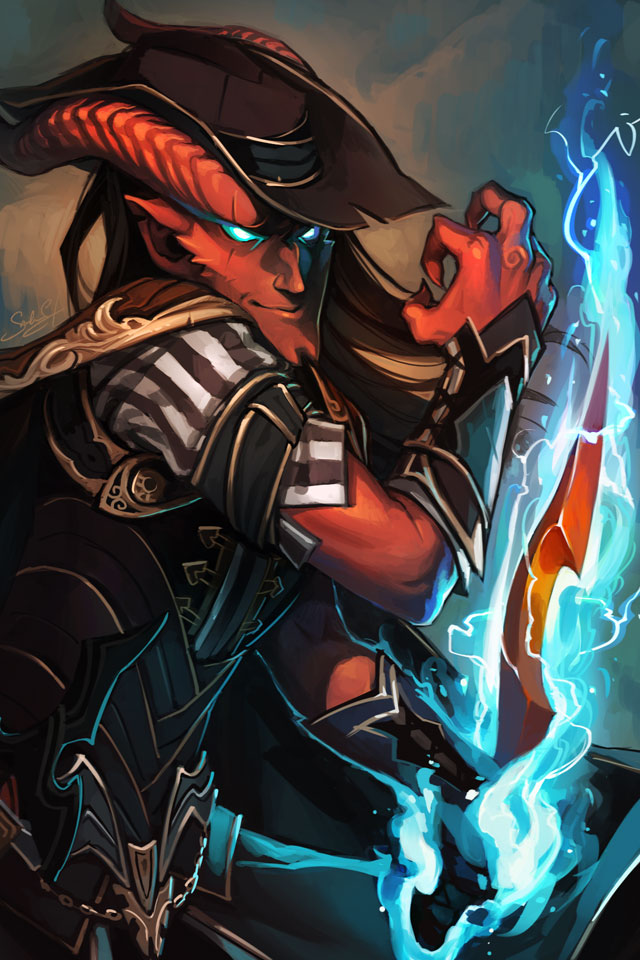




Inflict Misfortune
Beginning at 14th level, you’ve determined how to turn your control over luck to bring the worst misfotunes to your foes. Whenever an enemy fails a saving throw, fails an ability check, or misses an attack, you may use your reaction to absorb some of their luck and potentially further increase their misfortune by storing that luck for later; the next time you use your Winning Hand feature, you may immediately spend that luck to automatically determine the result of the game of chance. You may only have one instance of stored luck at a time.
You can use this feature a number of times equal to your proficiency bonus before needing to take a long rest.
Make Your Own Luck
At 18th level, you have so warped luck around you that the worst misfortunes avoid you. Whenever you roll a number that’s less than your proficiency bonus on an ability check, saving throw, or attack roll, treat the result as if you’d rolled a number equal to your proficiency bonus.
In addition, you can never fail any check that uses your proficiency in a gaming set; a failure becomes a success, and a success is treated as if you’d rolled a 20 for any effects that care about you rolling a 20. Either your opponent misses some obvious fact of the game, or your draw the right cards, or the dice land exactly where they need to, or some similar event.
Games of Chance
Some games are more appropriate for a table than others, and this note is here to give some guidance for a few popular games of chance. Obviously, only games that function with two players are usable, and games where the influence of chance can be minimized (such as TCGs) are not to be used.
Blackjack: Either the player or the DM may be the dealer, but it is most thematically appropriate for the DM to be. Play only one round.
Coin Flip: Obviously, this is a very solid choice as a quick, dirty, easy option.
Liar’s dice. Play only one round. This is a very suitable option if you only want to use dice.
Poker: Only play one round of poker; that is, deal one hand of five to the player and the DM, make bets, they discard and draw once, then make any final bets, then proceed to the showdown. If done this way, you may gain more than one benefit or penalty from the above.
Russian Roulette: For very clear and obvious reasons, do not allow someone to hurt themselves for a D&D game. It is perfectly possible to simulate this game with cap guns or simply dealing six cards numbered from 1 to 6 into a pile, pick one to be the ‘bullet’, and have players draw a card from the pile until they hit the bullet.


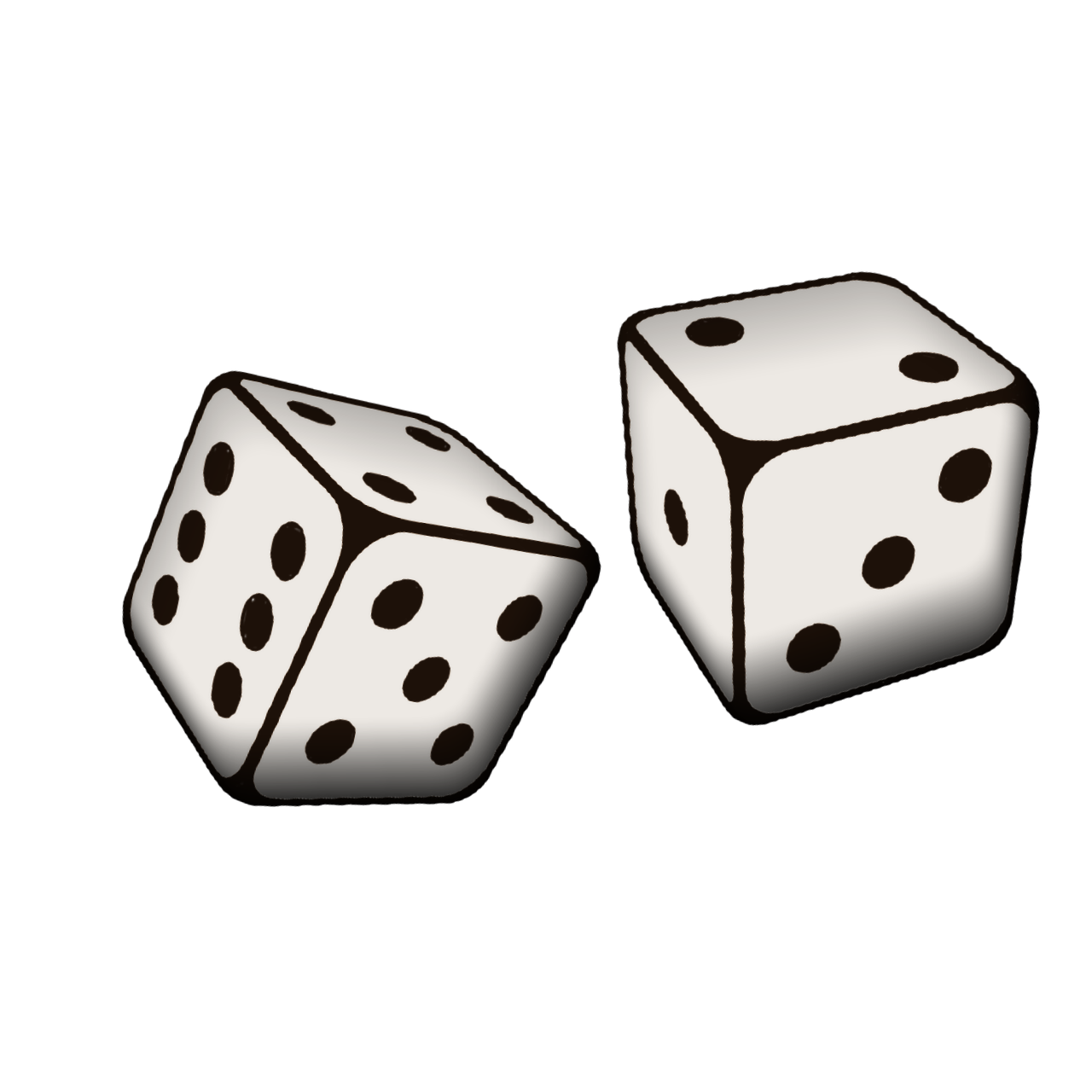
Otherworldly Patron: The Dragonslayer
In the annals of history, legend, and myth, there is at least one commonality between each culture. A universally beloved story that shows up regardless of how far apart two cultures are: The story of the Dragonslayer.
The details change. The methods change. The locale changes. Indeed, sometimes it’s not even necessarily an actual dragon in the story. But the core always remains the same: One individual steps up to end the threat of a great beast who seeks to abuse its great power, then strikes the beast down and ends its reign of terror forever.
It’s a wonderful tale, and every bard knows at least one variation of it, even the ones without a true dragon. Regardless of the tales, there’s always someone who will fight those dragons. And here you stand now, invested with power from some deal or agreement to take up that fight.
Stand tall, dragonslayer, and fight for those who can’t fight for themselves. You’re up to the task.
Dragonslayer Expanded Spells
| Spell Level | Spells |
|---|---|
| 1st | compelled duel, heroism |
| 2nd | enhance ability, magic weapon |
| 3rd | beacon of hope, protection from energy |
| 4th | death ward, locate creature |
| 5th | legend lore, steel wind strike |
Will to Fight
Beginning at 1st level, you gain access to the tools and training you need to fight your battles. You gain a fighting style as noted under the Fighter class. After making your selection, you can’t gain the Fighting Style feature again. If you have or would gain a Fighting Style from another source, you lose that Fighting Style. In addition, you gain proficiency with medium armor, shields, and martial weapons, and may use Dexterity for the attack and damage roll with any martial weapon as long as you’re not wearing heavy armor.
Find Weakness
At 6th level, you gain the ability to see a flaw in an enemy’s defenses, letting you damage an enemy otherwise immune. As a bonus action, you choose a creature you can see. Until the end of your turn, it loses any resistance or immunity to bludgeoning, piercing, or slashing damage, and it gains vulnerability to one of those damage types. You may use this feature a number of times equal to your proficiency bonus, and regain all uses when you finish a short or long rest.
Protective Aegis
Starting at 10th level, you’ve been invested with the necessary protections and understanding a dragonslayer needs. You are always under the effects of the heroism spell, and whenever you would make a Dexterity saving throw against a spell or ability used by a creature, you have advantage on that saving throw, and never take damage when you succeed on a Dexterity saving throw. In addition, you never take damage from an attack that misses you.
Dragonslayer
At 14th level, you attain the abilities of the great dragonslayers before you. As a bonus action on your turn, you invoke their power and gain the following benefits for 1 minute:
- As you activate this feature, designate a creature you can see as your opponent. You have advantage on attack rolls against that creature, and that creature takes extra damage whenever you hit it with an attack equal to your Charisma modifier. You have disadvantage on attack rolls against other creatures.
- Your opponent can’t use or benefit from features that allow it to automatically succeed on saving throws or avoid attacks.
- Whenever you hit a creature with an attack, if that creature has a movement type other than a walking speed, they can’t use it and have their walking speed reduced to 30 feet until the end of your next turn. If a flying creature is in flight when you hit them, they immediately fall.
- Whenever you’re damaged by an enemy, you may use your reaction to halve the damage that you take.
Once you use this feature, you can’t use it again until you finish a long rest.
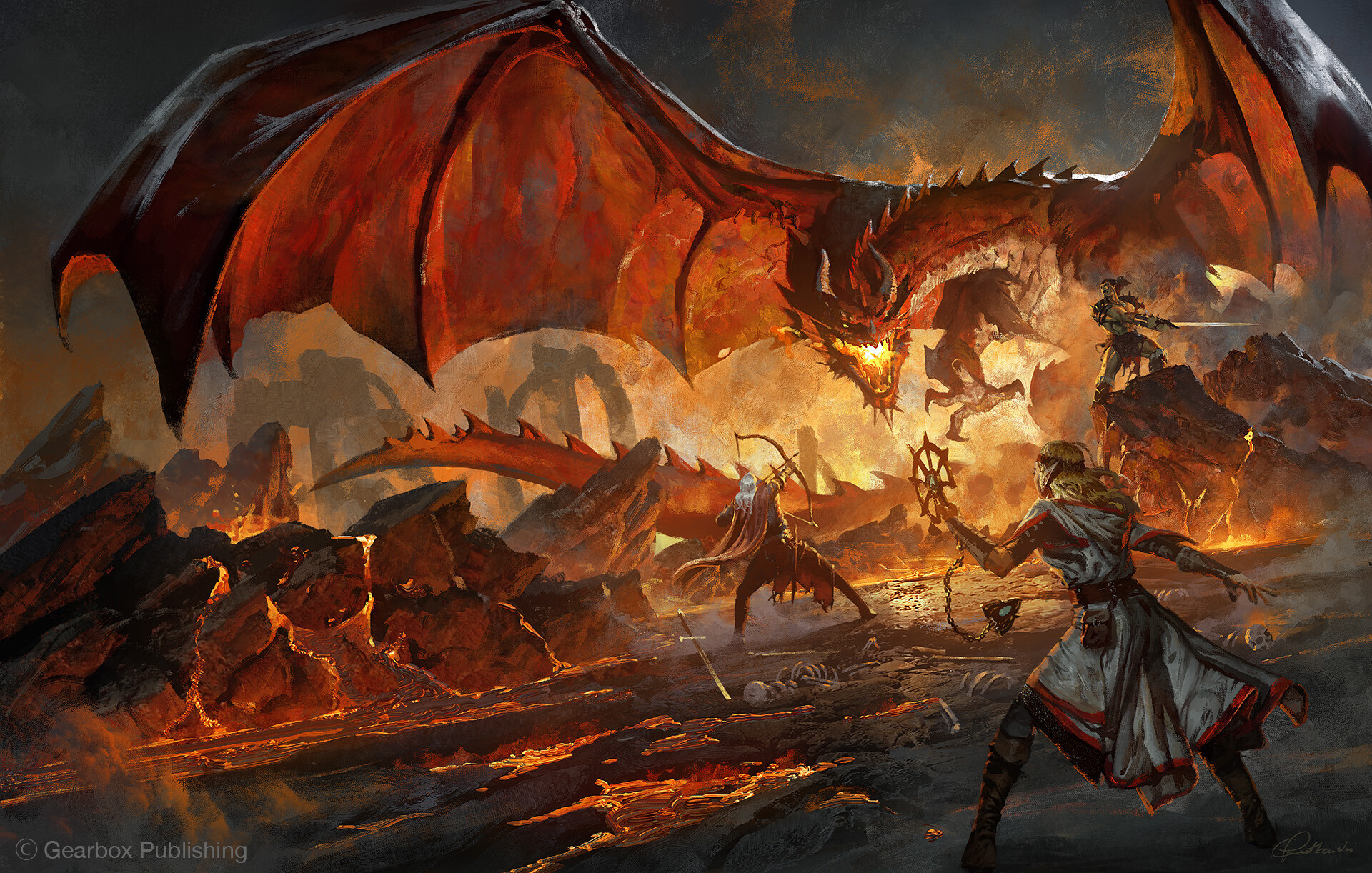

Wizard Tradition: Antimagic
It is an unfortunately common trend that for all of the good magic can do and the wonders it presents to society, there always seems to be at least a handful of people who use it to subjugate others or, even worse, harm others. And for many, there’s no fighting a mage in a straight fight unless you’re a supremely talented fighter, and even they have to be careful.
Thus, some take it upon themselves to learn magic in order to fight magic as effectively as possible. To nullify such mages and their advantage entirely so that they can’t use their magic to reign over others. Sometimes, you have to fight fire with fire, and those who pursue this tradition take that very much to heart.
Pierce the Veil
Starting at 2nd level when you take this tradition, you’ve learned the basics of fighting against magic. Whenever you cause a creature to make a Constitution saving throw to maintain concentration on a spell by damaging them, the DC for that check is instead either 15 or the full damage taken, whichever is higher. Whenever a creature has its concentration broken as the result of damage you caused, you may regain an expended 1st-level spell slot.
Magical Insight
Also at 2nd level, your training has granted you the necessary insight to prevent magic from sneaking by you. You have advantage on any Intelligence checks you make relating directly to magic. In addition, you are always under the effects of the Detect Magic spell.
Spellbreaker
When you reach 6th level, you gain the ability to counter magic effectively if you are familiar with the magic that is being used. You gain the following benefits.
- You learn the Counterspell and Dispel Magic spells if you didn’t already know them, and you may prepare them without them counting against your total number of prepared spells.
- Whenever a creature you can see starts casting a spell that you have in your spellbook, you immediately recognize it and you may cast Counterspell using a spell slot of any level to counter that spell.
- You are able to recognize if any creature is under the effects of a spell that you have in your spell book. If they are, you may use a spell slot of any level to cast Dispel Magic on them.
- Any time you would make an ability check using your spellcasting ability when you cast a spell, you may add your proficiency bonus to the check. At level 14, you add double your proficiency bonus instead.
Spellpiercer
At 10th level, you’ve mastered the ins-and-outs of fighting against magic. Spells with attack rolls you cast ignore any spells that would affect the armor class of your target and treat them as if they didn’t have the spell affecting them, you ignore the Shield spell when casting Magic Missile, and creatures can’t gain advantage on or a bonus to saving throws against spells you cast if that advantage or bonus would be granted by a spell. Additionally, you ignore resistances and immunities granted by spells.
Supreme Antimagic
At 14th level, your ability to fight magic becomes unparalleled. Whenever you cast Counterspell, other creatures can’t use Counterspell against you, and you can’t have Dispel Magic cast on you. Additionally, when you gain 8th-level spell slots, you learn the Antimagic Field spell and you may prepare it without it counting against your total number of prepared spells. While you are under the effects of Antimagic Field, you may cast and benefit from Detect Magic, Counterspell, and Dispel Magic as if you weren’t under the effects of Antimagic Field.




Optional features
Fighting Style Options
When you choose a fighting style, the following styles are added to your list of options for certain classes.
Guerrilla Leader
1st-level fighter feature, 2nd-level paladin feature
You are used to fighting in situations where being on a traditional frontline isn’t possible, and you need to strike and get out as soon as possible. While you’re unarmored or wearing light armor and not wielding a shield, you may add your Charisma modifier to your armor class. In addition, you gain proficiency in the Stealth skill.
Tools of the Smuggler
2nd-level ranger feature
You become proficient with disguise kits, forgery kits, and thieves’ tools. You also gain proficiency with Deception and Sleight of Hand checks. Whenever you would make a check to conceal something, including lying about your knowledge of its location, you have advantage on the check.
Artist Credits
Cover Art: Johannes Voss
Page 2: Shan Yanan
Page 3: Scarypet
Page 4: Nikolai Ostertag
Page 5: Maria Dimova
Page 8: Jason Chan
Page 9: Art from ELEX, copyright THQ Nordic
Page 10: ttalgi_null
Page 11: Jesper Ejsing
Page 12: JSchift
Page 13: Steven Belledin
Page 14: Inquissien
Page 15: Saren Stone
Page 16: Free-Use Art
Page 17: Greg Wutkowski
Page 18: Ryan Yee